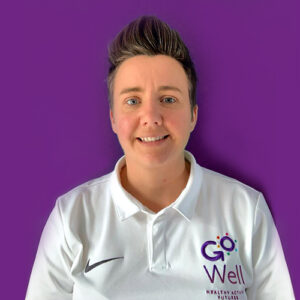We believe passionately in the power of physical activity to improve lives. Over this term we will be looking at how we can develop healthy minds and bodies through the six dimensions of wellness.
Firstly, what is wellness and why is it important?
Wellbeing? Physical health? Happiness? What does ‘wellness’ mean?
Often misunderstood and confused with similar terms, wellness is actually an active process that incorporates physical, mental and spiritual wellbeing. It is the state of being healthy in body and mind by practicing healthy habits on a daily basis.
What are the six dimensions of wellness?
Six areas of our lifestyle make up overall wellness – physical, social, intellectual, spiritual, emotional and occupational. These complement each other to provide a well-balanced, vital and prosperous life. By making simple healthy choices each day, we will move further towards achieving wellness.
We want to help you develop your own wellness and that of your pupils. In this first blog in the series, we’re exploring physical wellness.
Physical wellness
Physical wellness is an important contributor to our overall wellness. This means eating well, sleeping well and exercising regularly. Feeling physically good also enhances self-esteem, aids self-control and provides a sense of direction.
How can you support your own physical wellness and that of your pupils?
At Go Well, we want to impact on the wellness of 1 million people by 2025. One of the ways we are doing this is by introducing children to a broad range of healthy activities. Encouraging children to develop healthy habits whilst they are young will improve the quality of their life as they grow.
Here are three ways that will help you to achieve optimal physical wellness:
Eating healthily – a healthy diet where you eat a range of healthy foods, particularly fruit and vegetables, is beneficial for short and long-term health. It will also help keep you full and satisfied throughout the day. Change for Life has some great tips on nutrition and what a healthy diet looks like, as well as meal ideas and food swaps. You can also download a free food scanner app which makes it easier to find out what is really in the food and drink that you’re buying.
Exercising regularly and consistently – being active every day helps to strengthen your body and mind. Children aged 5 – 18 should aim for at least 60 minutes of moderate intensity physical activity a day (this means you should be breathing faster and feeling warmer). Children should take part in a range of activities across the week to develop movement skills, muscles and bones. Spreading active periods out across the day will also help to reduce the length of time spent sitting or lying down and break up long periods of not moving. You can get more information about activity guidelines different kinds of activities on the NHS website
Getting adequate rest – sleep is critical to good health and helps us to feel better physically and mentally. Not enough sleep can lead to difficulties in concentrating and a higher likelihood of getting ill. Children aged 6 – 12 years need 9 to 12 hours sleep every night. Quality sleep is essential for children’s growth and development, it will help them to do better at school, they will be able to react more quickly to situations, learn more effectively and solve problems more easily. The Sleep Charity has resources to help support children to get a good night’s sleep.
Find out more
You can find out more about the Six Dimensions of Wellness from the National Wellness Institute
Read our introductory blog


